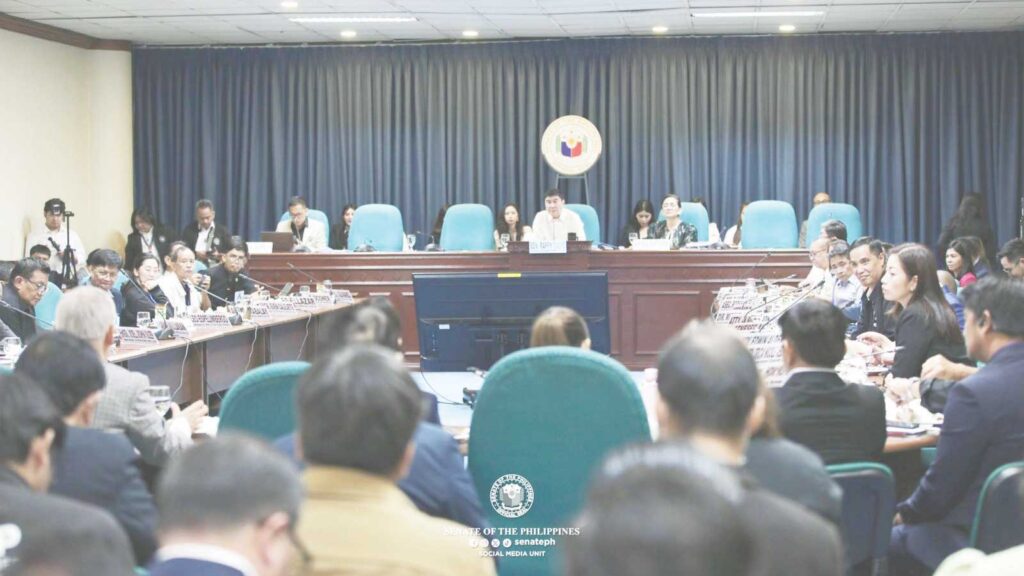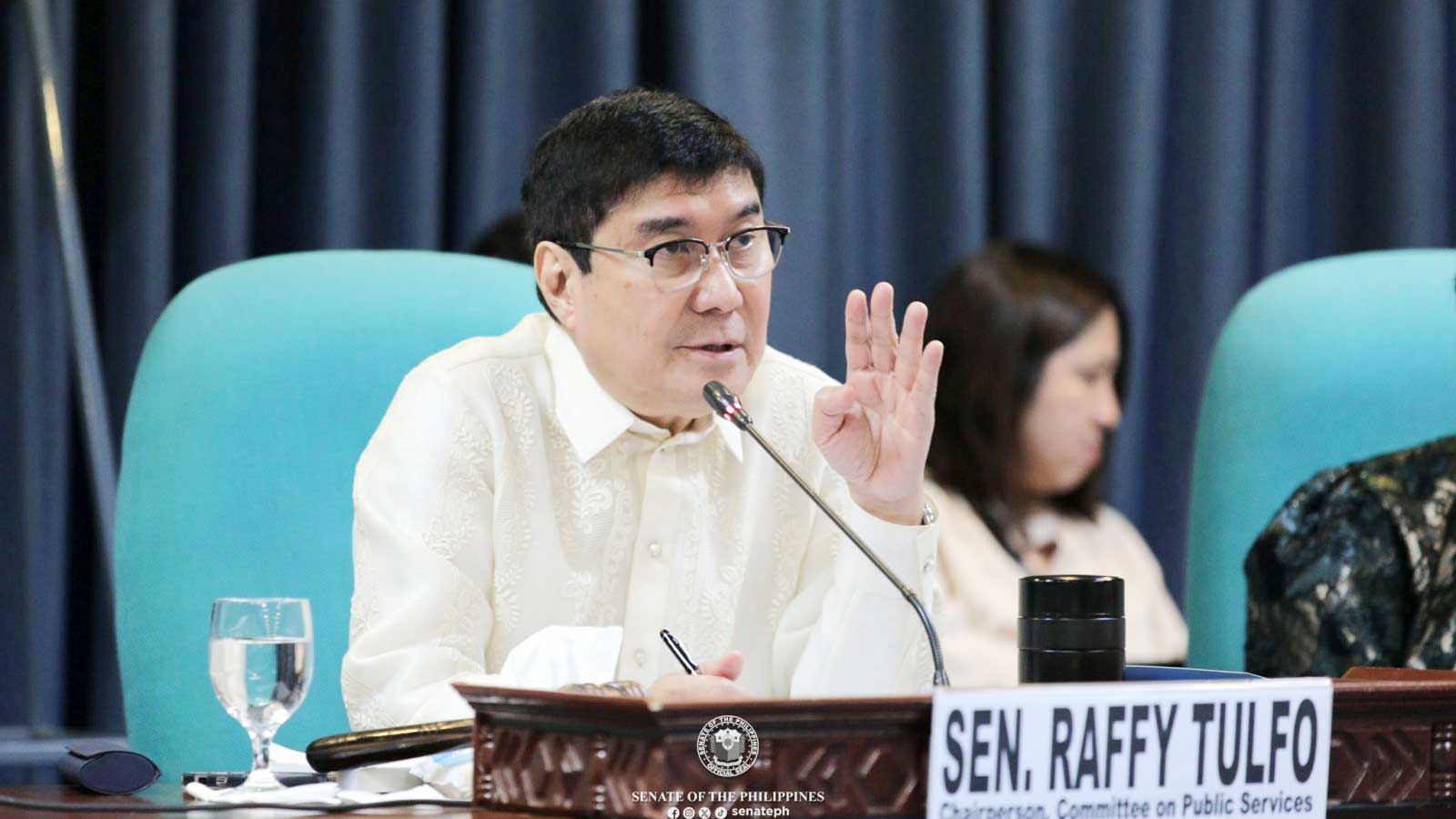The Senate Committee on Public Services on Monday opened a blistering inquiry into PrimeWater Infrastructure Corporation, questioning the integrity of its joint venture agreements (JVAs) with 75 local water districts that serve some 16 million consumers nationwide.
Committee chair Sen. Raffy Tulfo accused the company of reckless service, saying its entry into water districts had led formerly profitable utilities into losses and provided consumers with unreliable, sometimes unsafe, water supply.

“Before you entered into these agreements, the service was good and the water districts were profitable. But after your JVAs, the service became terrible and the water districts ended up losing money,” Tulfo told PrimeWater President Roberto Fabrique Jr. during the hearing.
Broken commitments
Documents presented by Tulfo highlighted wide gaps between PrimeWater’s capital expenditure commitments and actual investments delivered.
In the Metro Surigao Water District, the company committed P904 million but delivered only P62 million in five years. In Cabanatuan City, P716 million was pledged but just P262 million materialized, although PrimeWater disputed the figure and claimed to have delivered P600 million.
Panabo-Tagum Water District was promised P1.2 billion but received only P120 million, while Sta. Cruz, Laguna was supposed to get P518 million, but saw only P144 million in spending.
Other districts reflected similar shortfalls, with Tagaytay Water District standing out—once earning P55 million annually but now posting a P12 million net loss after entering into a JVA.
“It’s as if you entered into a JVA with PrimeWater just to lose money,” Tulfo remarked.
Dirty, unreliable water
Tulfo cited widespread consumer complaints: brown or foul-smelling water, weak pressure, lack of notice for service interruptions, and households forced to wake up at non-peak hours around 3 am to fill water containers.
“Our countrymen are being made to pay regular bills even if no water comes out of their taps,” he said.
Senator Risa Hontiveros, in her opening statement, described the situation as a “water crisis not caused by drought, but by neglect.”
She recounted complaints from Bulacan, Bacolod and Cavite, where residents called their tap supply “holy water”— a miracle if anything came out.
“Water is life, and the Filipino should not have to beg for a few drops from the tap,” Hontiveros said.
Legal breaches
The Office of the Government Corporate Counsel (OGCC) confirmed that PrimeWater’s failure to meet its financial commitments constitutes breach of contract.
“Districts have legal grounds to terminate their JVAs,” OGCC lawyer Tricia Velasco-Catera said, but added that pursuing termination is costly and difficult.
She explained that PrimeWater typically counters pretermination notices with court petitions for temporary restraining orders, while arbitration can cost local water districts up to P10 million—far beyond their means.
The OGCC also flagged PrimeWater’s performance bonds as inadequate, noting they were often “way below” the committed amounts and difficult to enforce.
Compounding the problem, the OGCC admitted it is understaffed and has asked water districts to hire private lawyers, even though the agency is mandated to provide legal support free of charge.
Job losses, political pressures
Tulfo also pressed PrimeWater for an explanation for its alleged failure to absorb hundreds of local water district employees as required by law, and instead retrenching them despite Civil Service Commission orders for reinstatement.
The senator suggested further that the JVAs were enabled by political interference, with water district board members — appointed by local mayors — approving agreements that often left consumers disadvantaged.
Company defense
Fabrique struggled to respond to many of the accusations, telling senators he had prepared to discuss only 16 of the company’s dozens of JVAs. He insisted, however, that PrimeWater had invested more in Cabanatuan than Tulfo’s figures showed and promised to consult with legal counsel on the Surigao case.
The executive denied that PrimeWater deliberately underdelivers but conceded that actual spending often falls short of pledged amounts.
Call for reform
Both Tulfo and Hontiveros urged regulators to tighten oversight of water utility contracts.
Hontiveros called for “strong, automatically enforceable penalties, including sharp cash bonds,” and a one-stop agency where consumers can bring complaints.
“We must act immediately to put an end to one-sided joint venture agreements, where the consumer always loses,” she said.
Tulfo vowed to persist with the inquiry, saying the pattern of “enticing promises followed by poor delivery” exposed by PrimeWater raised questions not just about one company but about the entire system of privatized water service.




